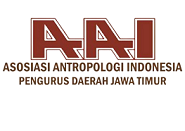Perceived positive mental health and resilience of grade 6 students
Downloads
Positive mental health plays a pivotal role in overall health and wellness. The study aimed to determine the relationship between perceived positive mental health and resilience of grade 6 students in Tagbitan-ag Elementary School and to identify the levels of positive mental health and resilience. The study utilized a non-experimental quantitative correlational research design. The data was collected using an adapted survey questionnaire and was conducted on the selected 80 grade 6 learners employing convenience sampling. The data was analyzed using the Mean and Pearson-Product Moment Correlation Coefficient. The study results showed that grade 6 students had a moderately high level of perceived positive mental health and resilience. It was also found that perceived mental health is associated with the students' resilience. That suggests that individuals with higher levels of positive mental health are also more likely to have higher levels of resilience or vice-versa.
Achor, S. (2010). The Happiness Advantage: The Seven Principles of Positive Psychology that Fuel Success and Performance at Work. New York: Crown Business/Random House.
Cicchetti, D., Luthar, S. S., & Becker, B. (2000). The construct of resilience: A critical evaluation and guidelines. Child Development, 71(3), 543–562.
Connor, K. M., & Davidson, J. R. (2003). Development of a new resilience scale: The Connor"Davidson resilience scale (CD"RISC). Depression and Anxiety, 18(2), 76–82.
Cowen, E. L., & Wyman, P. A. (1998). Resilience in children: the nature and the importance of the concept. Psicologia Escolar e Educacional, 2, 247–256.
Cowen, E. L., Wyman, P. A., Work, W. C., Kim, J. Y., Fagen, D. B., & Magnus, K. B. (1997). Follow-up study of young stress-affected and stress-resilient urban children. Development and Psychopathology, 9(3), 565–577.
Diener, E., Lucas, R. E., & Oishi, S. (2009). Subjective Well-Being. The Science of Happiness and Life Satisfaction. In C. R. Snyder & S. J. Lopez (Eds.), Oxford Handbook of Positive Psychology (pp. 187–194). Oxford: Oxford University Press.
Dray, J., Bowman, J., Wolfenden, L., Campbell, E., Freund, M., Hodder, R., & Wiggers, J. (2015). Systematic review of universal resilience interventions targeting child and adolescent mental health in the school setting: review protocol. Systematic Reviews, 4(1), 1–8.
Galli, N., Otten, M., Pagano, K., Gonzalez, S. P., & Miller, J. (2019). A preliminary examination of the relationship between the Connor-Davidson Resilience Scale-10 and resilient performance in competitive weightlifting. Journal of Sport Behavior, 42(3), 322–332.
Harter, S. (2015). Self-Development in Childhood and Adolescence. In International Encyclopedia of the Social & Behavioral Sciences (pp. 492–497). Elsevier. https://doi.org/10.1016/B978-0-08-097086-8.23019-5
Hernández-Torrano, D., Ibrayeva, L., Sparks, J., Lim, N., Clementi, A., Almukhambetova, A., ... Muratkyzy, A. (2020). Mental health and well-being of university students: A bibliometric mapping of the literature. Frontiers in Psychology, 11. https://doi.org/10.3389/fpsyg.2020.01226
Iasiello, M., van Agteren, J., Keyes, C. L., & Cochrane, E. M. (2019). Positive mental health as a predictor of recovery from mental illness. Journal of Affective Disorders, 251, 227–230.
Kessler, R. C., Aguilar-Gaxiola, S., Alonso, J., Angermeyer, M. C., Anthony, J. C., Berglund, P. A., ... Demyttenaere, K. (2008). Lifetime prevalence and age of onset distributions of mental disorders in the World Mental Health Survey Initiative. In The WHO World Mental Health Surveys: Global Perspectives on the Epidemiology of Mental Disorders (pp. 511–521). Cambridge University Press.
Keyes, C. L. (2002). The mental health continuum: From languishing to flourishing in life. Journal of Health and Social Behavior, 207–222.
Li, H., Martin, A. J., & Yeung, W. J. J. (2017). Academic risk and resilience for children and young people in Asia. Educational Psychology, 37(8), 921–929.
Longhi, D., Brown, M., & Fromm Reed, S. (2021). Community-wide resilience mitigates adverse childhood experiences on adult and youth health, school/work, and problem behaviors. American Psychologist, 76(2), 216.
Lukat, J., Margraf, J., Lutz, R., van der Veld, W. M., & Becker, E. S. (2016). Psychometric properties of the positive mental health scale (PMH-scale). BMC Psychology, 4, 1–14.
Luthar, S. S., Sawyer, J. A., & Brown, P. J. (2006). Conceptual issues in studies of resilience: Past, present, and future research. Annals of the New York Academy of Sciences, 1094(1), 105–115.
Mahdiani, H., & Ungar, M. (2021). The dark side of resilience. Adversity and Resilience Science, 2(3), 147–155.
Masten, A. S. (2001). Ordinary magic: Resilience processes in development. American Psychologist, 56(3), 227–238. https://doi.org/10.1037/0003-066X.56.3.227
Olsson, C. A., Bond, L., Burns, J. M., Vella-Brodrick, D. A., & Sawyer, S. M. (2003). Adolescent resilience: A concept analysis. Journal of Adolescence, 26(1), 1–11.
Ryff, C. (2013). Psychological well-being revisited: Advances in the science and practice of Eudaimonia. Psychother Psychosom, 83(1), 10–28.
Sagy, S., Eriksson, M., & Braun-Lewensohn, O. (2015). The Salutogenic Paradigm. In P. A. Linley, S. Joseph, S. Harrington, & A. Wood (Eds.), Positive Psychology in Practice: Promoting Human Flourishing in Work, Health, Education, and Everyday Life (2nd editio). John Wiley & Sons.
Satici, S. A. (2016). Psychological vulnerability, resilience, and subjective well-being: The mediating role of hope. Personality and Individual Differences, 102, 68–73.
Shelden, R. G. (1998). Chopra's "Seven Spiritual Laws of Success” and Crime. Humanity & Society, 22(3), 278–289.
Smidt, A. M., Adams-Clark, A. A., & Freyd, J. J. (2023). Institutional courage buffers against institutional betrayal, protects employee health, and fosters organizational commitment following workplace sexual harassment. PLOS ONE, 18(1), e0278830.
Sousa, V. D., Driessnack, M., & Mendes, I. A. C. (2007). An overview of research designs relevant to nursing: Part 1: quantitative research designs. Revista Latino-Americana de Enfermagem, 15(3), 502–507. https://doi.org/10.1590/S0104-11692007000300022
Srivastava, K. (2011). Positive mental health and its relationship with resilience. Industrial Psychiatry Journal, 20(2), 75.
Stratton, S. J. (2021). Population research: Convenience sampling strategies. Prehospital and Disaster Medicine, 36(4), 373–374.
Tomyn, A. J., & Weinberg, M. K. (2018). Resilience and subjective wellbeing: A psychometric evaluation in young Australian adults. Australian Psychologist, 53(1), 68–76.
Ungar, M., Ghazinour, M., & Richter, J. (2013). Annual research review: What is resilience within the social ecology of human development? Journal of Child Psychology and Psychiatry, 54(4), 348–366.
Vitale, R. A. (2015). Spirituality, resilience, and social support as predictors of life satisfaction in young adults with a history of childhood trauma. Kent State University.
Copyright (c) 2023 Indonesian Journal of Social Sciences

This work is licensed under a Creative Commons Attribution-NonCommercial-ShareAlike 4.0 International License.
1. The authors agree to transfer the transfer copyright of the article to the Indonesian Journal of Social Sciences effective if and when the paper is accepted for publication. The authors can download the Copyright Transfer Agreement here.
2. The legal formal aspect of journal publication accessibility refers to Creative Commons Attribution-NonCommercial-ShareAlike 4.0 International License (CC BY-NC-SA).
3. Every publication (printed/electronic) is open access for educational purposes, research, and library. Other than the aims mentioned above, the editorial board is not responsible for copyright violation.

IJSS by Unair is licensed under a Creative Commons Attribution-NonCommercial-ShareAlike 4.0 International License.




















